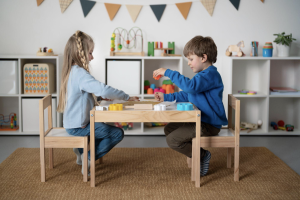Fixing Your Dogs' Habits the Right Way: A Full Training Guide

When you bring a new dog into your home, it is natural to want them to fit in and behave well. But sometimes, dogs can develop bad habits that can be challenging to break. Whether it's excessive barking, destructive chewing, or leash pulling, these behaviors can be frustrating and even dangerous for both the dog and their owners. But fear not! With proper training and guidance, you can help your furry friend overcome these habits and become a well-mannered companion.
Identifying Problematic Behaviors
The first step in addressing your dog's bad habits is to identify the problematic behaviors. Observe your dog's behavior closely and understand what triggers these actions. Is it boredom, anxiety, or a need for attention? Once you have a better understanding of the root cause, you can begin working on solutions. Keep a journal or make notes of when and where these behaviors occur, as it can help you track progress and identify patterns that may be contributing to the issue. Every dog is different, so what works for one may not work for another.
Luckily, if you live in the Atlanta area, you can click for dog board and train programs in Atlanta that offer structured environments to correct unwanted behaviors and reinforce positive habits. These programs can make a noticeable difference in your dog’s responsiveness and overall behavior.
The Importance of Consistent Training
Consistency is key when it comes to training your dog. Dogs thrive on routine and structure, so establish a consistent training plan and stick to it. For example, you can choose a reputable training program like Tip Top K9 or work with a professional trainer to create a customized plan for your dog. Be patient and recognize that training is an ongoing process that requires time and commitment. Have all family members on board with the same rules and expectations for your dog's behavior. This means everyone should use the same commands and reward system to avoid confusing your dog. Consistency in reinforcement and discipline helps in creating a clear understanding for the dog. Maintaining a regular schedule for feeding, walking, and training sessions will contribute to a well-rounded and well-behaved dog. This will prevent confusion and mixed messages, allowing your dog to learn and adapt more quickly. Good communication among family members about the dog's progress will also ensure a unified approach to training.
Positive Reinforcement Techniques
When it comes to training your dog, positive reinforcement techniques are highly effective. This involves rewarding your dog for displaying desirable behaviors, such as sitting or staying on command. Rewards can include treats, praise, or playtime with their favorite toy. Positive reinforcement motivates your dog to repeat these behaviors and strengthens the bond between you and your furry friend. Use positive reinforcement consistently and avoid using punishment or negative reinforcement, which can be harmful and create unwanted side effects in your dog's behavior.
Managing and Redirecting Undesirable Habits
In addition to positive reinforcement, managing and redirecting undesirable habits is also significant. This means setting up your dog for success by removing objects or situations that trigger problematic behaviors. For instance, if your dog tends to chew on furniture when left alone, make sure to remove any tempting items and provide them with a safe alternative like a chew toy. Redirect their attention towards more appropriate activities and reward them for choosing the desired behavior. Consistency and patience are crucial in managing and redirecting undesirable habits, but over time, you will see results as your dog learns what is acceptable behavior.
Troubleshooting Common Issues in Dog Training
While every dog is unique, there are some common issues that owners may encounter during training. One of the most common problems is consistency or lack thereof. If different family members have different expectations and methods for training, it can confuse and frustrate your dog. Another issue could be a lack of patience on the owner's part. Training takes time and effort, so it's crucial to be patient and not get discouraged if progress seems slow. Some dogs may also struggle with certain behaviors due to past traumas or health issues. In these cases, it may be necessary to seek professional help from a trainer who specializes in behavior modification.
Maintaining Good Habits for Long-Term Success
Once your dog has successfully overcome their bad habits, maintain the good behaviors for long-term success. Continue with consistent training and reinforcement techniques to reinforce positive behavior. Don't stop rewarding your dog for desirable actions just because they have learned them well. Moreover, continue to provide mental and physical stimulation through playtime, walks, and other activities to prevent boredom and destructive behaviors from resurfacing. Keep an eye out for any potential triggers or changes in your dog's environment that may cause a regression in their behavior, and address them promptly.
Fixing your dog's bad habits requires patience, consistency, and understanding. Maintain good habits for long-term success by continuing with consistent training and providing mental and physical stimulation. With dedication and proper guidance, you can transform your misbehaving pup into a well-mannered and happy member of your family.






